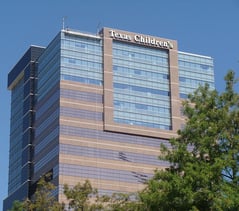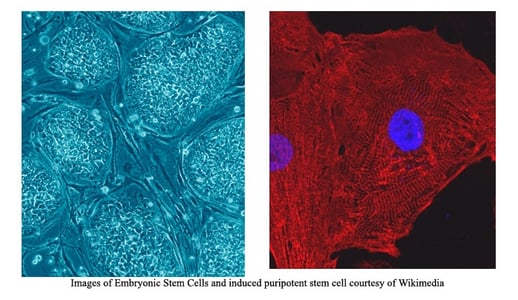The University of Minnesota is investing $274,673,000 in new construction and remodel work of science buildings on the Twin City’s campus. They have broken ground on the new $108.6M Health Sciences Education Center. In addition, according to the 2018 Annual Capital Budget for U-Minn they have also approved $6,600,000 for the construction of a new Plant Growth Research Facility. The budget also includes $2,381,000 for the Institute for Health Informatics Remodel. Finally, the university will undertake an $8,400,000 renovation of the Biological Sciences Center.
Read MoreTags: University of Minnesota, Minnesota, University of Minnesota Twin Cities, laboratory equipment suppliers, BioResearch Product Faire, Biotechnology trade show, new building construction, University construction
Thomas Jefferson receives over 40 million in National Institute of Health (NIH) research funding each year. One of the projects supported by the NIH since 2011 has been an investigation into DNA viruses. This study recently yielded new insight into the two states of a viral protein and revealed its function as a DNA-sensor. This finding may serve as a road map for developing anti-viral therapy for pathogenic DNA viruses.
Read More
Tags: Pennsylvania, Thomas Jefferson University, NIH funded Research Projects, Research Funding, Northeast Region, ThomJeff, TJU, viruses
In April of last year, Joan and Sanford I. Weill and the Weill Family Foundation donated $185 million to establish the UCSF Weill Institute for Neurosciences. This was the largest single donation in UC San Francisco’s history. It raised the philanthropic commitments made to UCSF neuroscience programs last year to more than $500 million.
Read MoreTags: University of California San Francisco, sell lab products, brain research, Research Funding, UCSF, laboratory equipment suppliers, Lab Product Sales, NIH funding, UC San Francisco Parnassus, BioResearch Product Faire, NIH awards 2017, Brain Injury, sfvs18s
The Department of Biochemistry at the University of Wisconsin–Madison is home to a large collection of imaging equipment and facilities, including the Biochemistry Optical Core (BOC). The BOC provides state-of-the-art instrumentation for light and fluorescence based microscopy, including epifluorescence, confocal, and super-resolution imaging. Now UW-Madison is adding another piece of equipment to their state-of-the-art imaging arsenal: a cryo-electron microscopy (cryo-EM) facility.
Read MoreTags: University of Wisconsin, University of Wisconsin Madison, UWisc, UW Madison, Research Funding, Laboratory Equipment Supplier, Lab Product Sales, BioResearch Product Faire, Laboratory product sales, 2017 research funding
On average, 20 people die each day while waiting for an organ transplant, according to the United Network of Organ Sharing. However, scientists at the University of Minnesota envision a day when organ transplants from donors will no longer be necessary. Instead, failing organs will be replaced with ones created by specialized 3D printers. In a giant step toward that goal, researchers have manufactured lifelike artificial organ models using a custom-built 3D printer. These models mimic the exact anatomical structure, mechanical properties, as well as the look and feel of real organs. This research project is supported by two, five-year NIH grants that total over $2.6 million.
Read MoreTags: sell lab equipment, University of Minnesota Twin Cities, Alzheimers, bioprinting, Biomedical Engineering, Research Funding, lab suppliers, UMinn, Lab Product Sales, research news, BioResearch Product Faire, uminn research, NIH awards 2017, nih research funding
Ohio State University (OSU) plans to augment the Wexner Medical Center with a new hospital and an ambulatory center. The university is currently seeking qualified professionals to design the inpatient tower as well as the outpatient care facility. These new medical buildings are key components of OSU’s strategic plan andtheir “Framework 2.0” plan which are both designed to assist the university achieve its goal to continue providing cutting-edge research, outstanding clinical training and world-class patient care.
Read MoreTags: Ohio State University, Ohio State, laboratory equipment suppliers, new medical buildings, BioResearch Product Faire, Laboratory product sales

The Jan and Dan Duncan Neurological Research Institute (NRI) at Texas Childrens Hospital in Houston is a leading research institution continuously making breakthroughs in the field of neurological research on topics such as autism, Alzheimer's and epilepsy. Now, thanks to Charif Souki, co-founder of Tellurian, the NRI will have an additional $10 million to further their life science research. (Image courtesy of Zereshk via Wikimedia Commons)
Read MoreTags: new research funding, tmc, BioResearch Product Faire Event, Houston, TX, Neurological Disorder, Texas Childrens Hospital, Neurological Research
Most people think of paralysis in terms of not being able to move or walk. But there is another side to being paralyzed , the lack of sensation. The inability to feel pain leaves the person susceptible to burns from inadvertent contact with hot surfaces. Researchers at the Broad Center for Regenerative Medicine and Stem Cell Research at UCLA have developed a new protocol which could serve as the first step toward stem cell-based therapies to restore sensation in paralyzed people who have lost feeling in parts of their body.
Read MoreTags: Stem cell research, LAVS, UCLA, laboratory equipment suppliers, Lab Product Sales, research news, UC Los Angeles, BioResearch Product Faire, UCLA research funding, general lab supply, 2017 research funding, nih research funding
Though experts may disagree on when earth’s supply of fossil fuels will be exhausted, they do agree that it will happen eventually. After all, fossil fuels typically require millions of years of degradation to create. So the race for alternative biofuels is on.
The Department of Energy (DOE) recently awarded the Washington University, St. Louis (WUSTL) $3.9 in research funding to develop bacteria that manufactures renewable biofuels. WUSTL scientists are studying Rhodococcus opacus, a bacteria that grows on toxic compounds, using them as a source of food for the production of biofuels. The goal of this research project is to produce biofuels that can completely replace petroleum-based fuels.
Read MoreTags: Washington University St. Louis, Bioresearch funding, Biotechnology vendor show, Washington University, WUSTL, Renewable Energy, biofuels, laboratory equipment suppliers, NIH award, BioResearch Product Faire, Department of Energy, life scinece, life science labs, Biotechnology trade show, Reproductive Research
.jpg) The University of South Florida is a leading research institution in Tampa that conducts cutting-edge research into all life science fields and steadily publishes research breakthroughs. The campus is currently in the process of expanding to provide even more space and resources to life scientists. Construction on the new school of medicine campus has begun, and is expected to be completed in 2019.
The University of South Florida is a leading research institution in Tampa that conducts cutting-edge research into all life science fields and steadily publishes research breakthroughs. The campus is currently in the process of expanding to provide even more space and resources to life scientists. Construction on the new school of medicine campus has begun, and is expected to be completed in 2019.
Tags: FL, Tampa, BioResearch Product Faire Event, new building expansion, University of South Florida, USF, USF Health Morsani College of Medicine, 2018, new building construction, Morsani College of Medicine and Heart Institute


